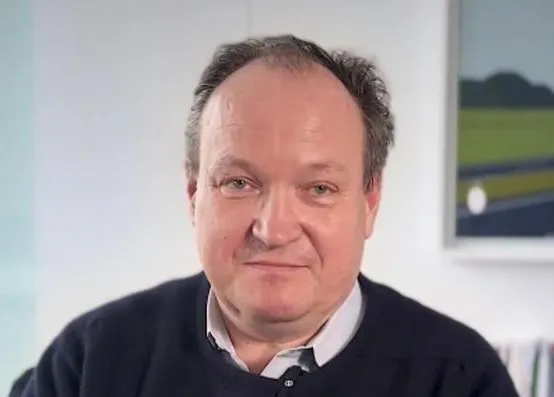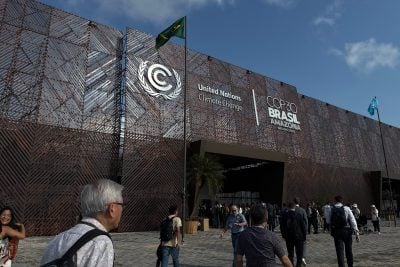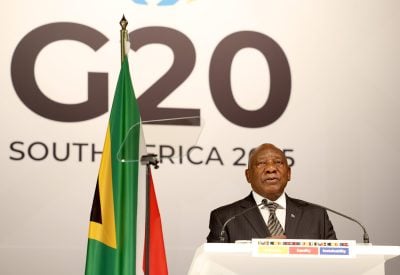This article was produced with the support of European Investment Bank
The 6th United Nations Environment Assembly is taking place in Nairobi, Kenya, from 26 February to 1 March. UNEA-6 is the first major United Nations gathering since the COP28 climate conference in Dubai last December, when 195 countries agreed to transition away from fossil fuels and established the Loss and Damage Fund to compensate developing countries for the effects of climate change.
Environmental sustainability is key to tackling this global challenge. UNEA-6 connects climate action and other environmental priorities by focusing on effective, inclusive and sustainable multilateral actions to tackle climate change, biodiversity loss and pollution.
In developing countries, increasing pressures on public finances, debt sustainability constraints and perceived riskiness hold back green investments. The risks are many, from political instability, weak policies or regulations to the poor health of local financial markets, risks at the project level, the steep cost of capital, and high interest rates.
According to the African Development Bank, Africa currently receives only 3% of global climate finance flows. With the scarcity of public funding, the role of public private partnerships is to mobilise climate finance at scale. Multilateral Development Banks, like the European Investment Bank, work in different markets through innovative solutions that de-risk and crowd in private capital. At COP28, multilaterals agreed to strengthen our cooperation to support countries and the private sector in accelerating a green and just transition and to build resilience.
The European Investment Bank is the lending arm of the European Union. We are one of the biggest multilateral financial institutions in the world and one of the largest providers of climate finance. We have been a strong partner for African countries for more than 55 years. Through our dedicated development arm, EIB Global, we are strengthening our presence in Africa and are mobilising private capital for innovative green technologies, such as green hydrogen. We will use this experience to build new partnerships to unlock private finance for green projects.
Over the last decade the European Investment Bank has provided more than €32 billion for green energy, water, urban, education, agriculture, telecom, health and business investment in 40 countries across the continent.
This included: a €10 million investment in Benin in 2022, which brings low-carbon solar energy to 600,000 people; in Uganda, a €12.5 million investment in ENGIE, which brought 1.4 million Ugandans access to reliable and affordable off-grid solar energy; a €10 million investment in Madagascar that helped WeLight give 45,000 households solar energy.
Private equity is emerging as a powerful tool in driving greener economic growth. Private equity funds provide the needed liquidity and returns, while effectively managing risks associated with climate investments such as renewable energy, carbon credits, and biodiversity certification. Infusing equity into climate-resilient infrastructure is significantly accelerating progress, ultimately steering us towards a sustainable and climate-resilient future.
Last year, the European Investment Bank invested over €350 million in equity funds operating across the African continent. This brings the overall investment in funds to nearly €3 billion providing financing (equity and/or debt) to over 2,000 investees. A majority of these investments have been in the climate action and environment sustainability sectors.
A few examples: the Mirova Gigaton Fund, which has received European Investment Bank support over the years, with the latest being a US$75 million financing this year, will accelerate clean energy access and climate action in emerging markets. We also signed a US$40 million investment deal with Acre Export Finance Fund I during the Africa Climate Summit in Nairobi last year, to invest in climate infrastructure across Africa.
Another effective approach to support the private sector has been intermediated lending dedicated to early-stage climate adaptation investments by working with local financial institutions, providing credit lines on favourable terms, which they then lend on to individuals or small businesses. Over the last five years, intermediated lending has been the European Investment Bank’s largest investment mechanism in Africa, supporting private businesses through a high number of smaller loans.
A model of this type of financing was showcased at COP 28 when the European Investment Bank and the Bank of Kigali announced we would make available €100 million in a sustainable agriculture financing initiative that will support thousands of farmers and agricultural businesses across Rwanda. The initiative will enable them to better withstand the economic, social and business impacts of climate change.
Last year, we announced that we will offer climate-resilient debt clauses that will allow developing countries to suspend their loan repayments, if they are struck by a natural disaster. These efforts –currently at a pilot stage –are all aimed at easing the debt burdens of vulnerable countries, fostering greater debt sustainability, and scaling up our green finance.
The world needs new partnerships, and bolder ambitions and policies when it comes to climate action and environmental sustainability. The European Investment Bank is ready to build new partnerships across Africa to accelerate investments that benefit people and the planet.
European Investment Bank Vice-President Ambroise Fayolle oversees the financing of environmental projects, climate action and the circular economy, as well as relations with other multilateral development banks.

 Sign in with Google
Sign in with Google 



